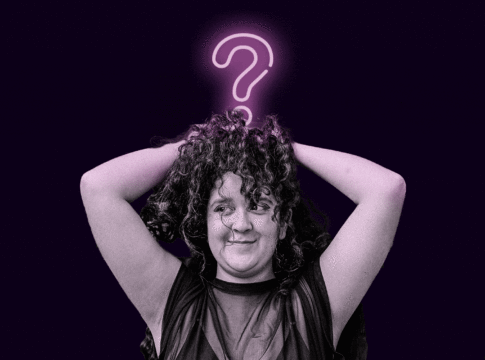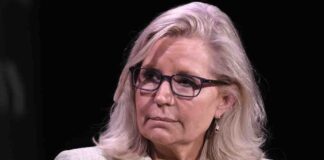When the North Carolina Supreme Court suspended early voting in September to let Robert F. Kennedy remove his name from the ballot after the deadline, its decision drew a nationwide outcry—much of it echoing an extraordinary dissent in the case authored by Justice Allison Riggs. One of just two Democrats on the seven-member court, Riggs bemoaned her colleagues’ “egregious and unjustified” interference with the election. In a rare move, she also invited the public to condemn the majority’s unprincipled judging, mourning “this a dark day in the history of the state’s judiciary.”
As a justice, Riggs has a constitutional obligation to protect access to the ballot. As a candidate running to keep her seat, she is also on the ballot. North Carolina has partisan judicial races, and Riggs is fending off a challenge from a Republican. If she loses next month, her court will have a single remaining liberal, Justice Anita Earls, who faces reelection in 2026. In a new Slate Plus bonus episode of Amicus, Dahlia Lithwick and Mark Joseph Stern spoke with Justice Riggs about a wide range of issues, including the RFK Jr. case, the sweeping importance of the right to vote, and the balancing act demanded by running for a seat on an independent judgeship, but doing so as a partisan candidate. Below is an excerpt of their conversation, edited and condensed for clarity.
Mark Joseph Stern: In your dissent from the RFK Jr. decision, you wrote that “any public aspersions cast on the impartiality, independence and dignity of our state courts are well-earned.” It’s pretty remarkable to hear a judge inviting the public to criticize her court like that. Can you talk about what moved you to write it?
Justice Allison Riggs: As a former voting rights attorney, I think one of the ways in which voters have the most power is not just in casting their ballots, but also in holding their elected officials accountable. Yes, it’s great to go and vote, but really it’s important also to connect the dots. To learn about the candidates running, learn about the folks who are serving you, and whether they’re doing what they’re supposed to be doing. I view it as my job to make sure that voters have as much information as possible to hold their elected officials accountable.
My seat is the only seat up on the North Carolina Supreme Court this year. I want voters to know that when I say transparency, consistency, and integrity are important characteristics to me, I mean that I will speak the truth in my written word, as well. It is not my job to denigrate the integrity of the courts. But when the courts need to be held accountable, it is my job as constitutional officer to make sure that voters have information to understand when a court is acting inappropriately—as I suggested in my dissent.
Dahlia Lithwick: There is an irony in that you, as a North Carolina justice, are not just deciding how this upcoming election is going to be administered—you’re also running for office yourself. And you’re raising a question that’s very important to those of us who both revere and worry about the courts in equal measure. I think you are trapped in this pincer of worrying deeply about the integrity of the court and also, at the same time, critiquing it. How do you square that circle? I mean, you’re running in a partisan election.
Riggs: I’m open with folks that I am constantly walking on this narrow balance beam. I am not a policymaker, I’m a judge. The policymakers in North Carolina, the Republican Legislature, decided to make judicial elections partisan. They decided to get rid of public financing for judicial races. I’ve talked to judges in a lot of states who are horrified that I call lawyers and ask for money directly. How can you possibly expect a fair hearing when you run elections that way?
I don’t get to decide that. I can only do the best I can under the system. I think my responsibility is to articulate for the public and for voters that this is a system that I personally find challenging—to run in partisan judicial elections without any public financing means there’s very little difference between my race and a race for U.S. Senate. The judicial branch is supposed to be the least political branch, the independent check and balance on the other, more political branches of government. But that’s not the situation we have right now. So I work to bring my independent voice to the bench, to critique the system, to try and reinforce independent thinking, to work with my colleagues who have a different letter after their name to try and find common ground and compromise. It’s my moral and constitutional obligation to try and make this court work as best it can for the people of this state and to defend the founding documents that we hold so dear.
Stern: That’s a difficult concept to communicate to voters—promising impartiality in a partisan race.
Riggs: Judges have to be fair and impartial, and I think I have a track record now to demonstrate that. But when all you go out and say is “I will be fair and impartial,” people just shrug. It doesn’t allow a human connection. It doesn’t allow for that accountability that I’m trying to encourage. So I have been talking about my values with voters. And it’s walking a fine line—I have to be clear that I’m not talking about how I will vote in any case. So, for instance, I want folks to know my personal story, that I hope to start a family, but that I may need access to the kind of reproductive health care that has come in the crosshairs of legislatures and courts post-Dobbs, in states like Texas and Georgia where women are suffering mightily because of new laws.
That’s a long-winded way of saying, yes, it’s a challenge. My goal is to do it thoughtfully, to do it with the interests of giving voters information while knowing that we need courts that are trusted and that act independently. We need both those things. You need trust of the people in the courts, but we also have to earn that trust, and we do it by being independent and apolitical.
Stern: A North Carolina appeals court recently limited the kind of ID that students in the state can use to vote. We know you can’t comment on that litigation. But before donning the robe, you worked as a voting rights attorney, including in voter ID cases across the American South. Could you speak about why this issue remains so salient despite overwhelming evidence that voter fraud basically does not exist in this country?
Riggs: I spent 14 years as a voting rights attorney. I litigated a number of cases related to voter ID and allegations of voter fraud. The evidence we gathered and put forward in countless trials was always that voter fraud, particularly in-person voter fraud, is not a demonstrable problem—but voter disenfranchisement is.
I think this leads to why it’s important to have former civil rights attorneys on the bench and a diverse judiciary by professional background. I have experience representing people who did not have access to an ID. What I can tell you is that the Constitution does not cast judgment on voters if they decide to vote last-minute. If they decide to vote last-minute, the right to vote that they enjoy is just as robust as if they decide to vote [early]. The Constitution doesn’t distinguish between the two, but sometimes policymakers do. Whether it’s pretext for something else, I can’t really say. But I represented a young Black man who was quadriplegic whose elderly parents tried to help get him an ID several times, unsuccessfully. Voting was the most important thing to him. He communicates with an eye-gaze device and his home is covered with “I Voted” stickers.
If you haven’t met families like that, you might think, Oh, well, it’s the parents’ fault for not getting him an ID. Or It’s the student’s fault, or It’s the veteran’s fault. You might wonder, How do they live in a modern society without having a birth certificate? Well, if you think that, you’ve lived in a white, middle-class bubble, and you’re disconnected from how a lot of other people live. I take seriously the fact that it’s my job to interpret the laws with common sense, to fearlessly and vigorously defend our state constitution. And I have the lived experience of understanding the ways in which there’s been a disconnect between the reality on the ground and the interpretation of the law. And I think that perspective is important.
Lithwick: I think that dovetails nicely into my next question, about the time you spent as a lawyer restoring civil rights in Florida, giving the right to vote back to people who’d been disenfranchised. Maybe you can connect that, in a really concrete way, to this abstraction of the role that courts play in voting rights.
Riggs: What I’m trying to do is help people see beyond the walls of their home, to understand what other people might be going through. That’s just my background. And one of the things that I learned very early in my legal career was that the right to vote is dependent on things that are less clearly guaranteed by the Constitution. Which is to say: Can I get food to eat? Can I take care of my children? Can I put a roof over my head? When I was doing reenfranchisement work in Florida, I helped folks who had lost their civil rights because of a past felony conviction from 20 or 30 years ago. One of the values I talk about is a multiracial, inclusive, participatory democracy. That’s when our country works best—when we have more voices heard.
But as I was doing this work in Florida, I talked to a lot of folks who said: Well, I was incarcerated. I can’t get a good job. You’re talking to me about voting, and I understand that I should have a say in the policies that have directly affected me and my life. But my primary responsibility is to take care of my kids, to keep them safe and clothed and housed. Or as someone told me: I was a licensed plumber, but now I can only work at Burger King. Because in Florida, when you lose your civil rights, you don’t just lose the right to vote—you lose the right to get state licensure. So I was talking to tons and tons of folks who couldn’t get licensed as a roofer, couldn’t get licensed as a plumber, or a hairdresser, or as a lawyer, because of this system.
That helped me understand that we, as a society, have to meet people’s immediate needs if we’re also going to ask them to see the power in their vote and exercise it. It gets into this cyclical understanding of why people do and don’t vote. When you don’t have a holistic system to support people voting—if you say, Well, you didn’t care enough, you didn’t jump through these hoops—you’re excluding people from civic participation in a way that has a domino effect in so many other areas.



